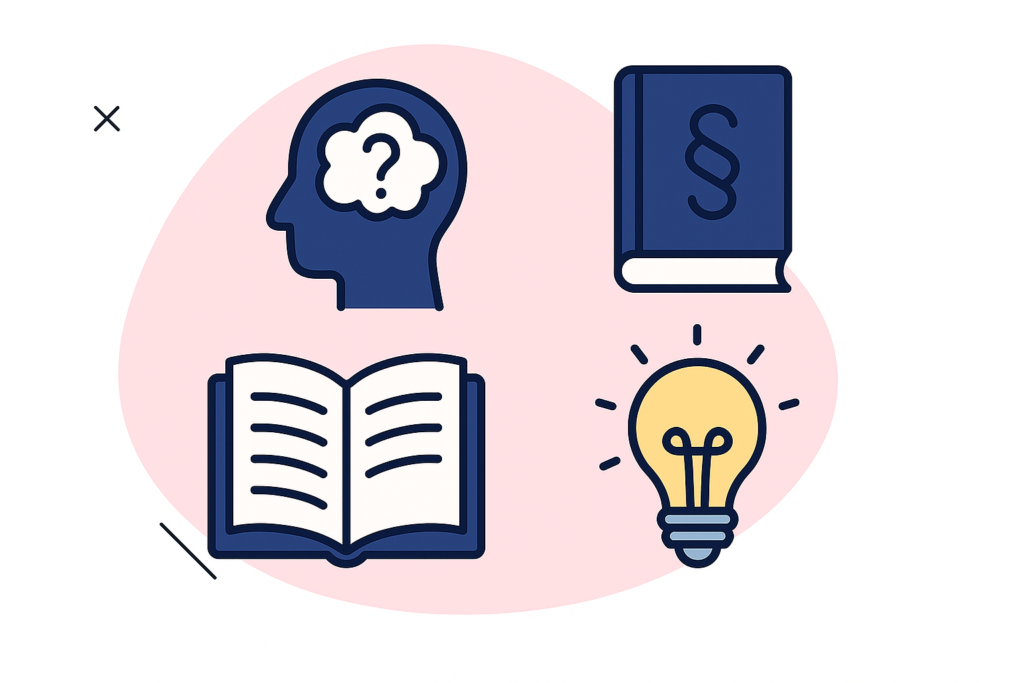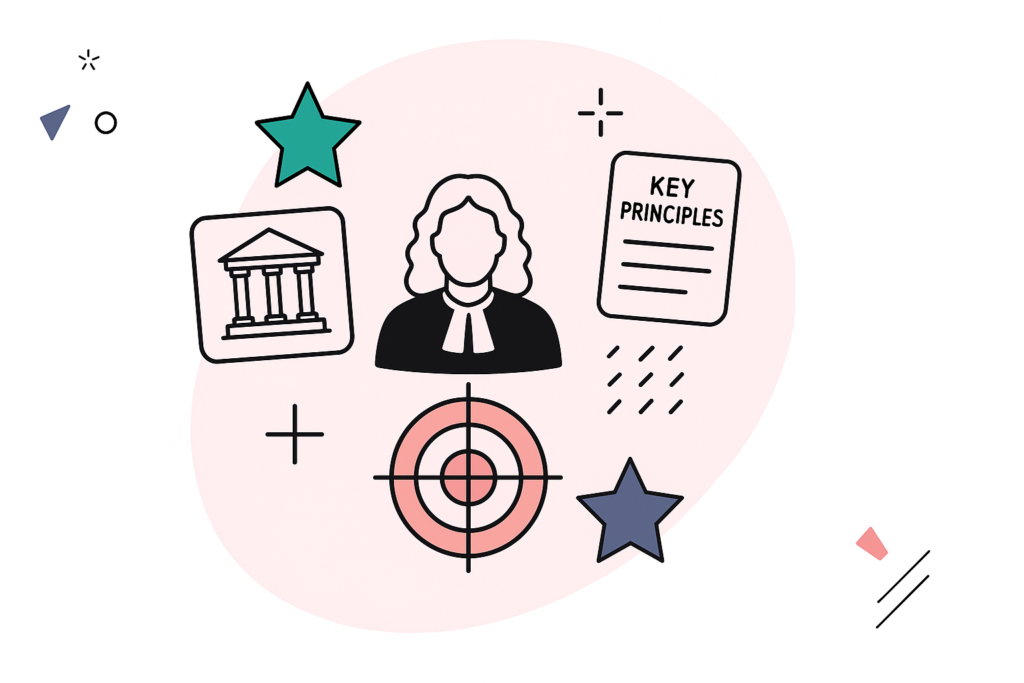The Judiciary Examination Interview is the ultimate hurdle on your path to becoming a judge. It’s not just about legal knowledge but also about proving your personality, communication skills, and ethical values. This is your final opportunity to shine and showcase your capabilities beyond the written exam.
This guide will help you prepare, build confidence, and make a lasting impression during your interview.
1. Purpose of the Interview: More Than Just Legal Knowledge

Assessing Your Entire Profile
The judiciary interview evaluates more than your legal expertise; it’s a test of your overall suitability as a judge.
- Legal Acumen: You’ll demonstrate your understanding of law and your ability to apply it effectively.
- Personality & Ethical Values: It’s about proving you are a fair, impartial, and ethical judge, capable of serving justice with integrity.
This is your chance to show that you can combine legal knowledge with the right ethical and personal qualities.
2. Know Your Resume Inside-Out
Be Prepared to Discuss Every Detail
Your resume is more than a list of achievements, it’s your personal story.
- Academic achievements: Be ready to explain your educational journey and why you chose the law.
- Work experience: Talk about how your previous roles have prepared you for a judicial position.
- Internships & Legal Experience: Discuss how hands-on legal experience shaped your understanding of law.
Expect questions about your motivation, passion, and long-term commitment to the field of law. This is where you prove your dedication to serving justice.
3. Build on Your Legal Knowledge: The Core of Your Preparation
The Importance of Legal Knowledge
Though your personality matters, legal knowledge is still central to the interview.
- Landmark Judgments: Be thorough in your understanding of significant cases.
- Key Legal Principles: Brush up on basic concepts and recent legal developments.
- Current Legal Issues: Stay updated with new case laws and evolving legal trends.
Demonstrating that you’re both knowledgeable and up-to-date will set you apart.
4. Showcase Your Ethical Values: Integrity Above All
Handling Ethical Dilemmas
Integrity is the cornerstone of any great judge. The panel may ask questions that test your moral compass.
- Conflicts of Interest: What would you do in a situation where your impartiality is at risk?
- Personal Beliefs vs. Law: How would you handle cases where personal beliefs conflict with the law?
Stay calm, honest, and demonstrate your commitment to upholding justice and fairness, no matter the situation.
5. Master Communication Skills: Speak Like a Judge
How to Communicate Effectively
Judges are not just decision-makers; they are communicators who must articulate clear and understandable judgments.
- Clarity: Practice expressing complex ideas in simple terms.
- Conciseness: Keep your answers direct and to the point.
- Composure: Maintain a calm and respectful tone, even when faced with challenging questions.
Effective communication is key in conveying your judgments clearly and making complex legal issues understandable to everyone.
6. Confidence and Composure: Stay Calm Under Pressure
Maintain Your Composure
Confidence is key to impressing the panel. While nervousness is natural, staying composed is crucial.
- Take a deep breath before answering difficult questions.
- Stay positive, confident, and composed in your responses, even if you’re uncertain of an answer.
- Respond thoughtfully, reflecting your problem-solving abilities and mental agility.
7. Show Respect and Courtesy: Professionalism is Key
Respectful Demeanor
Your professionalism and courtesy during the interview are crucial.
- Treat everyone, whether the interview panel or fellow candidates, with respect.
- Demonstrating respect is essential to maintaining the decorum and dignity required of a judge.
8. Stay Updated: Broaden Your Awareness
Keep Informed Beyond the Law
Your knowledge should extend beyond legal texts. Stay updated on:
- National and International Events: A judge should be aware of current socio-economic and global issues.
- Socio-political Issues: Understanding societal concerns helps in shaping fair judgments.
Showing a broad perspective will help you present a well-rounded view during the interview.
9. Research the Judiciary System: Know Your Role

Understand the System
Research your state’s judiciary system and its recent reforms.
- Understand its structure, challenges, and evolution over time.
- Familiarize yourself with notable judgments to show your engagement with the system.
This research will highlight your commitment to the judiciary and enthusiasm for serving as a judge.
10. Mock Interviews: Your Dress Rehearsal for Success
Practice Makes Perfect
Mock interviews are a great way to build confidence, polish your answers, and prepare for unpredictable questions.
- Practice in front of friends, family, or mentors who can provide constructive feedback.
Common Questions to Prepare For
- Why do you want to become a judge?
- Tell us about a landmark judgment that influenced you and why.
- How would you handle a case involving ethical conflict?
- What are your views on the judicial system in our state?
- How do you stay updated with legal developments?
Final Thoughts: Make an Impact, Leave a Lasting Impression
Shine in the Interview
The judiciary interview is your final opportunity to showcase not just your knowledge, but also your personality, communication skills, and ethical values.
- This is where you can truly shine and show the panel why you’re the ideal candidate to serve the cause of justice with honor and integrity.
Embrace this opportunity, stay confident, and let your unique strengths shine through. Good luck on your journey to becoming a judge!










 Features
Features






